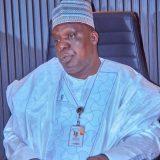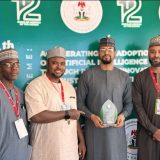The Deputy Governor of Zamfara State is the second-highest executive officer in the state, serving directly under the Governor. The Deputy Governor is elected alongside the Governor. He is responsible for assisting in the administration of the state, representing the Governor in various capacities, and stepping in when the Governor is unavailable.
Core Functions:
- Assisting the Governor:
The deputy governor supports the governor in the execution of state policies and programs.
- Acting Governor:
In the event of the governor’s absence, death, impeachment, or inability to perform their duties, the deputy governor assumes the role of acting governor.
- Representing the Governor:
The deputy governor often represents the governor at official functions, events, and ceremonies.
- Oversight and Coordination:
The deputy governor may be assigned specific ministries or sectors to oversee and coordinate the activities of state ministries and departments.
- Implementation of Government Policies:
The deputy governor is involved in ensuring the effective implementation of government policies and programs.
- Participation in Executive Council:
The deputy governor attends and participates in State Executive Council meetings.
Specific Examples:
Key Responsibilities
- Assisting the Governor: The Deputy Governor supports the Governor in the execution of policies and programs aimed at the development of Zamfara State.
- Policy Formulation: Engaging in the formulation of state policies, particularly those that address critical issues such as education, health, agriculture, and security.
- Representation: Representing the Governor at official functions, meetings, and events, both within and outside the state.
- Advisory Role: Providing counsel to the Governor on various matters affecting the state and its citizens.
- Coordination of Ministries: Overseeing specific ministries or departments as assigned by the Governor, ensuring that they operate efficiently and effectively
- Community Engagement: Engaging with local communities to understand their needs and concerns, and advocating for their interests at the state level
- Crisis Management: Assisting in the management of crises, including security challenges, and working with relevant agencies to restore peace and order.
- Legislative Liaison: Working with the State House of Assembly to facilitate the passage of laws and policies that benefit the state.
Significance
– Leadership Development: The Deputy Governor often plays a pivotal role in grooming future leaders within the state and promoting good governance practices.
– Public Trust: By actively engaging with the community, the Deputy Governor helps to build public trust in the state government.
– Sustainable Development: Through focused initiatives and programs, the Deputy Governor contributes to the sustainable development of Zamfara State, addressing issues such as poverty, education, and health care.
Current Initiatives
The Office of the Deputy Governor may be involved in various initiatives aimed at improving the quality of life for residents. These could include:
– Educational Programs: Initiatives to enhance access to quality education and vocational training.
– Health Campaigns: Programs aimed at improving public health and awareness, particularly in rural areas.
– Agricultural Development: Supporting farmers through training programs and access to resources to boost agricultural productivity.
The Office of the Deputy Governor of Zamfara State is integral to the effective governance of the state. Through its various functions and initiatives, it aims to foster development, enhance public welfare, and ensure that the voices of the citizens are heard in the corridors of power. The Deputy Governor’s role is not only administrative but also a vital link between the government and the people, ensuring that the aspirations of the citizens are met.














